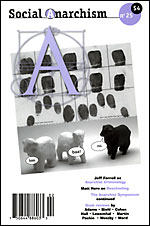Fist of Sun
Also covering: Hatful of Tigers: Reflections on Art, Culture, and Politics by Sergio Ramírez.
Fist of Sun and Hatful of Tigers focus on a struggle against oppression. Writers Ferruccio Brugnaro and Sergio Ramírez have been active participants, Brugnaro as a factory worker in Italy, Ramírez as a member of the Sandanista movement in Nicaragua. Both are now primarily writers.
Jack Hirschman has capably translated the intensity of Brugnaro's feelings, using English vernacular to emphasize the plight of the worker and class differences, but the original Italian, the sound of the language, the choice of words and their placement and repetition, conveys a beauty and poetics that cannot always be reflected in the English version. This book is not just about ideas; it is about language. The language sings as well as shouts.
The essays in Hatful of Tigers describe Ramírez's relationship with Julio Cortázar, a writer/poet who played a major role in the Nicaraguan revolution. They are written in memoir form, beginning with a poem by Cortázar and concluding a year after his death. They describe Nicaragua as a culture that has become the spoke of a bicycle wheel as opposed to a link in a bicycle chain. The "good neighbor" (the United States) in the center of the wheel wants the spokes (the countries of Central America) to remain dependent, not to link together in a chain that could have strength, that could threaten its dominance.
As Hatful of Tigers is about more than one man, Fist of Sun also goes beyond the factory door to address the plight of all workers: "I gotta bottom-line even more the furious creative struggle of all the world's workers" ("The Loneliness, the Piercing Hunger", p. 11). Brugnaro took the struggle beyond the worker to "standing up every day against war and kicking the butts of the exploiters" ("I'm not ashamed, shout it everywhere", p. 21).
Sergio Ramírez similarly wrote of the rich and powerful, the "good neighbor"/eagle that sinks its claws into the people, keeping Nicaragua within the Western sphere of influence and at a low level of development. As Brugnaro stressed, literature, poetry are not just pretty words, but are forces of revolution. Their creators are dangerous people, people who have to be stomped out as if their pens were guns. A writer could moreover be a leader, a proponent of change. The people had to be confined within their traditional customs, within a museum where they could not pose a threat to the powers that be.
Hatful of Tigers revolves around the fighters and martyrs of the revolution, a feeling of triumph in the face of losses, the capture of the streets by life. Fist of Sun focuses on the down-trodden, the despair and danger that penetrate chemical factories, personal triumph and an earth under construction, a place where the darkest pain can dissolve into light.
When Cortázar, the inspiration for Hatful of Tigers, asked Ramírez about the struggle, Ramírez replied, "It is here, growing like a rumor in the dark" ("September 1976. Frankfurt/Paris", p. 58). Both books demonstrate that there is no conflict between struggle and its depiction, between activism and literature. Brugnaro noted, "We want to bring new soul to the life of the world" ("The Worker Procession", p. 63). In any language, aloud or silently, the books are a pleasure to read.
Fists of Sun by Ferruccio Brugnaro, trans. Jack Hirschman. Somewhere: Curbstone Press, 1998. 95 pp., $10.95 paper.

